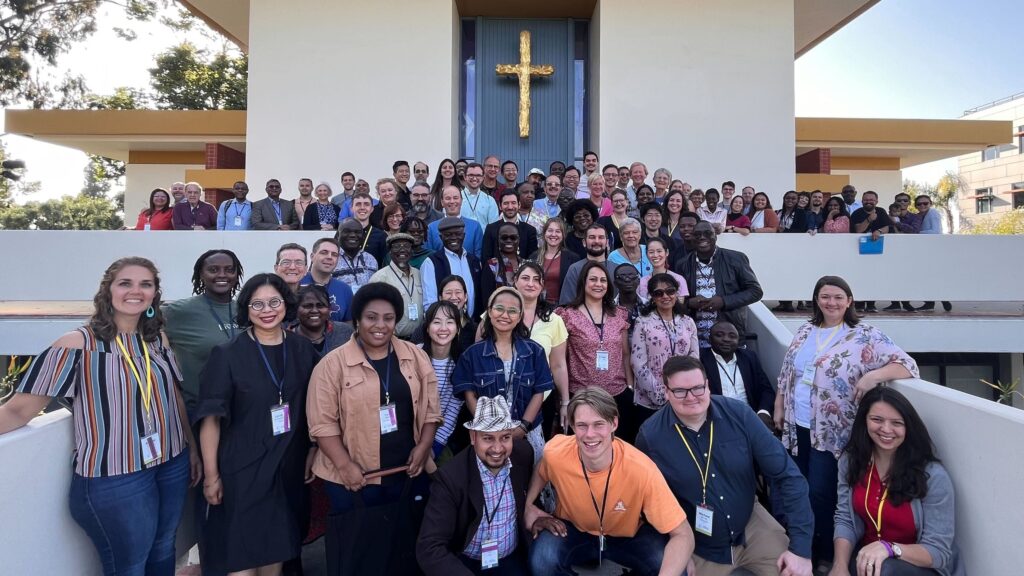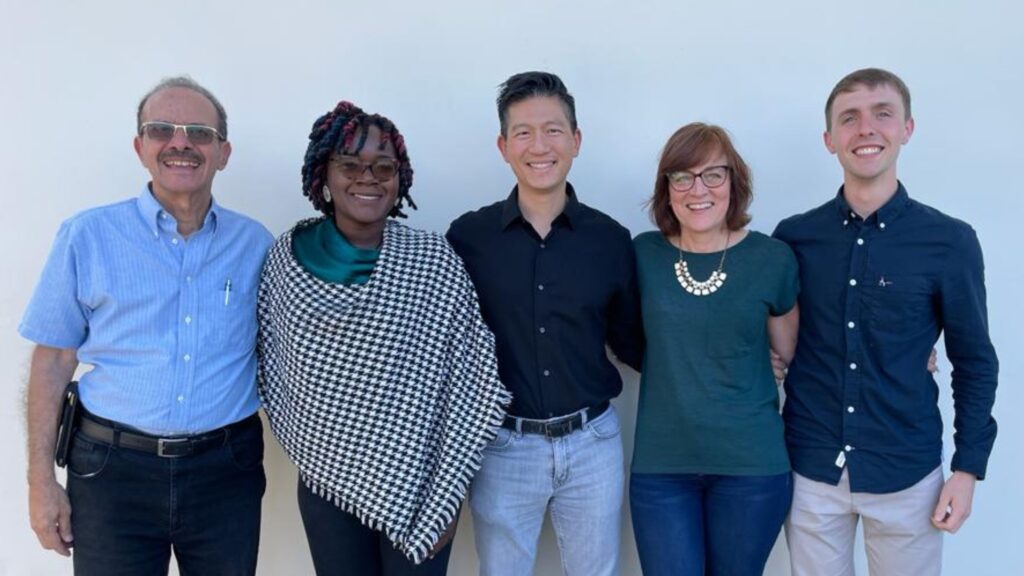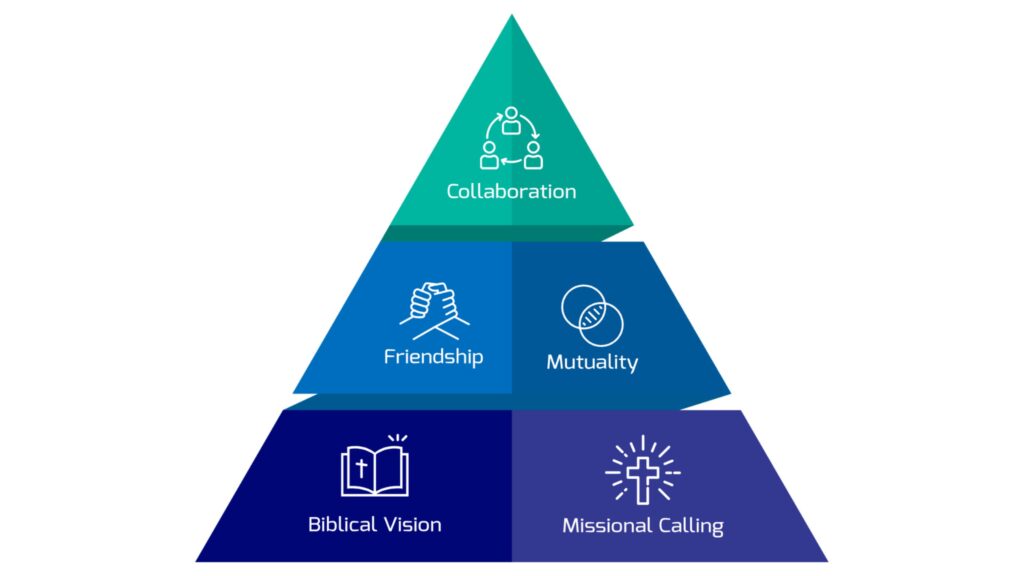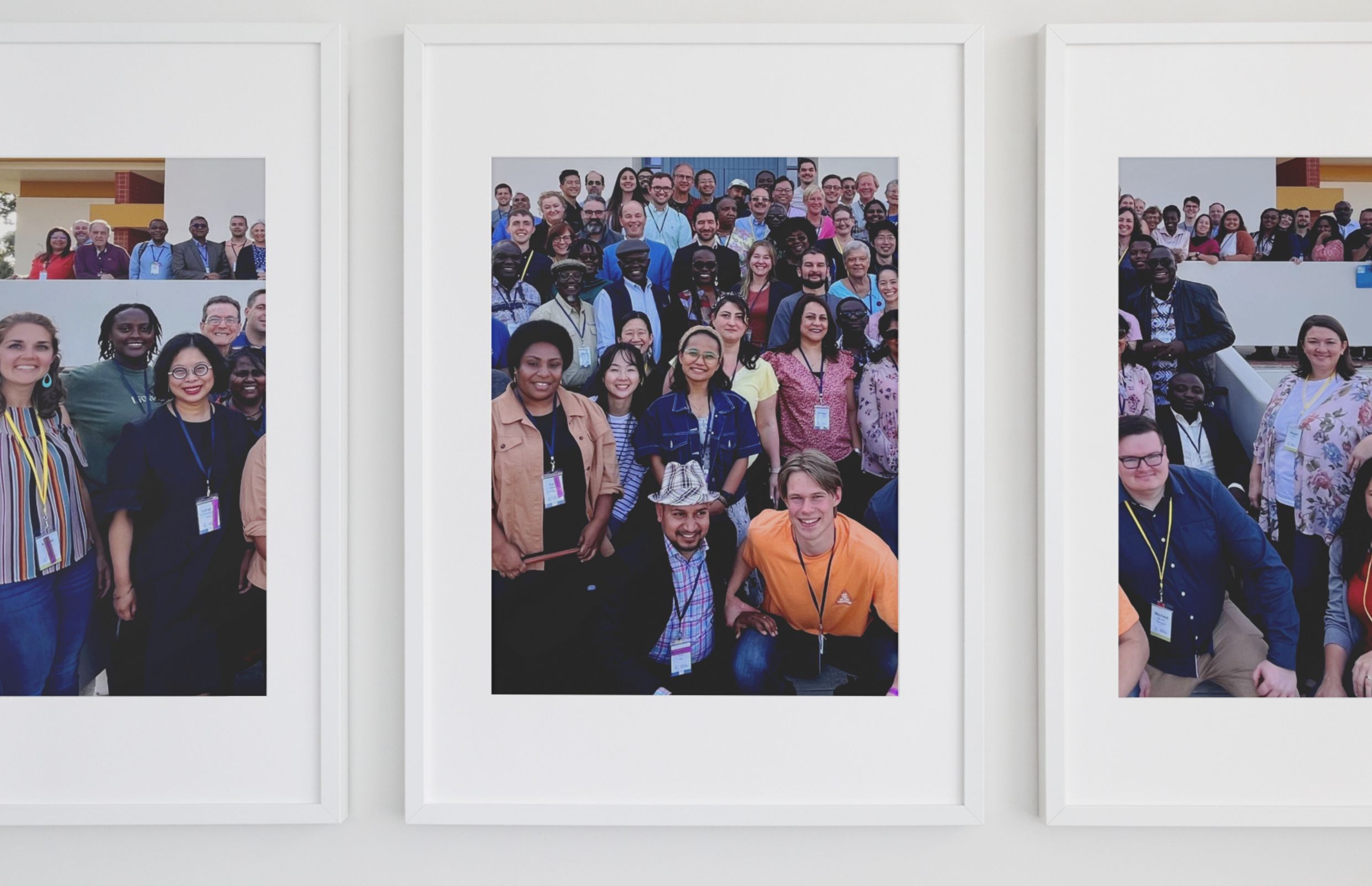At the recent Lausanne Generations Conversation (LGC23), I was refreshed and deeply encouraged, not to mention challenged, by the focus of the gathering which quickly became apparent to me—that God’s missional purpose is at work in every generation, particularly through intergenerational leadership. Our approach to mission is made richer when we can appreciate what different generations have to offer, including mine. But when I first arrived at LGC23, I was doubtful.
From 31 May to 3 June 2023, nearly 100 leaders from 41 nations representing five generations (ages 18–81) gathered at Biola University in La Mirada, California, for LGC23. Together with the global listening calls, focus group calls, and regional gatherings that make up the Lausanne 4 journey, LGC23 helped inform our active listening in preparation for the Seoul 2024 congress and beyond.
I came to LGC23 as a participant, and I confess I initially thought I didn’t have much to offer. I’m young—still under 30—and I don’t have a ministry big enough to be internationally noticed. I don’t have decades of experience behind me or a PhD in missions. What experience, wisdom, or advice could I honestly share?
A Recipe for Mutual Encouragement
In the gospel account of Jesus’ feeding of the 5,000, a young boy offers what he had—five rolls and two small fish. These were nothing much through human eyes, but enough for Jesus to multiply so that thousands of lives were touched by the Bread of Life. This young boy’s step of obedience led others older and wiser than him to worship.
When Jesus calls us to serve his global church, he doesn’t require an impressive resume. All he asks is that we humbly bring what we have and that we share it with others.
When Jesus calls us to serve his global church, he doesn’t require an impressive resume. All he asks is that we humbly bring what we have and that we share it with others. This is the recipe for mutual encouragement.
This posture was repeatedly emphasised throughout LGC23, whether formally in times of discussion and engagement or simply through building intergenerational friendships over lunch or during extended walks between venues. For me as a younger leader, this time sitting under the wealth of wisdom, experience, and encouragement that older leaders have to offer was invaluable.
Likewise, I believe my younger, fresh perspective, enthusiasm, and openness to learning led to our mutual encouragement. As one of the older leaders I met observed, ‘It is in diversity—across ages and cultures—that genuine unity can be achieved and demonstrated and in that way mirrors the God we serve.’

LGC23 participants pose at Biola University in La Mirada, California.
Each LCG23 participant was strategically selected from across the global church to represent five living generations and diverse missional interests. Assigned to table groups, we participated in Scripture engagement through the book of Acts and wrestled with discussion questions, problem-solving activities, and case studies, while regularly giving feedback to the larger group.
This approach was highly engaging and effective in achieving broad participation from all groups and ages. It was wonderfully refreshing to hear the insights of young and growing leaders, complemented by those of older experienced leaders, unified by a common vision to see the Great Commission fulfilled. It felt like we were starting to truly hear the voices of the global church in unison.

The LGC23 programme planning team: Ramez Atallah, Khara Collymore, Allen Yeh, Lindsay Olesberg, and Sam Couper.
The essence of intergenerational leadership was further portrayed through the LGC23 programme team themselves. The team spanned five generations from the youngest member, Sam Couper, representing Gen Z, who had never attended a Lausanne gathering before, to the most senior member, Ramez Atallah, who was present at the first Lausanne gathering in 1974. Other members of the programme team included Lausanne board member Khara Collymore, representing Generation Y (also known as millennials), and for Generation X, author and professor Allen Yeh and Lindsay Olesberg, chair of YLGen scripture and prayer. The mutuality exhibited by and facilitated through the programme team is one of the building blocks towards effective intergenerational collaboration.
Friendship and Mutuality: The Building Blocks of Intergenerational Collaboration
Intergenerational collaboration is best fostered through intergenerational friendships and mutuality. These are two of the building blocks that LGC23 presented through the Intergenerational Leadership Pyramid, which is built on the foundation of biblical vision and missional calling.
Intergenerational friendship goes beyond mentorship. While mentorship generally takes a top-down approach with the goal of building up the younger partner, true intergenerational leadership emphasizes missional friendships, which are side-by-side, facing outwards by engaging common interests towards a common goal.

The Intergenerational Leadership Pyramid presented at LGC23.
This kind of friendship is mutually beneficial. When both parties intentionally foster trust, humility, respect, empathy, and reconciliation, the relational bridge can become strong enough to sustain difficult conversations instead of fostering superficial empowerment. This can lead to authentic intergenerational partnerships for global mission, because the mission benefits from what each has to offer.
After all, it was Billy Graham and John Stott’s friendship that sparked the idea of the First International Congress on World Evangelization in 1974. We can reflect on how important their friendship was to the collaborative yet catalytic identity that Lausanne continues to embody to this day. As ‘iron sharpens iron’, our friendships, particularly with those who are different from us generationally, culturally, or otherwise, sharpen our focus and allow us to be gracious enough to see through another point of view.
During a time of reflection in table groups, I shared something, not knowing that it would encourage an older leader who commented that implementing my suggestion would strengthen his own approach in ministry to youth. I learned that through engaging in active listening, different generations are able to appreciate what each one has to offer.
We know that collaboration aims to reduce duplication, and for this reason we younger leaders need to learn from the experience of seasoned leaders who have worked through issues and navigated challenges we will still encounter. Likewise, we live in a world that is changing rapidly, and some of the issues of today and the challenges of tomorrow are perhaps best addressed by those in closest proximity to them—the younger generations. This requires a level of humility that must be fostered across all generations.
Listening is one way we demonstrate this humility. There were times in our table group discussion that the oldest member of our group held back and listened. While she had more ministry experience than my entire lifetime, she was willing to hear the thoughts and ideas of younger leaders. When she spoke, she offered wisdom but invited others into the conversation in a way that showed she was not past learning. This curiosity requires more intentionality and patience than we are often willing to give.
Collaboration requires compromise and invites a tension between the desired product and the desired process.
Collaboration requires compromise and invites a tension between the desired product and the desired process. During the programme, we engaged in a number of activities that all pointed to this observation. While the route of collaboration is not generally the most efficient, leaders need to be open to accepting that sometimes the development that happens in the process is more important than the result.
Knowing the gifts each member brings to the team and drawing those gifts out so that they can be utilised and developed aids in the collaborative process. When we put the product ahead of the process, we can miss out on the full expression of gifts that are invested in the team, and the final outcome may not be as rich as its full potential. In essence, approaching the team with the attitude of ‘How can I serve you better?’, instead of expecting the team to ‘Serve me!’ results in a much better process.
One Generation to Another
In the opening address, Nana Yaw Offei Awuku, Lausanne’s global associate director for generations, shared some insights into the theme of generations in Scripture. He concluded with an observation from Matthew 28:18–20, a passage we know well as the Great Commission. Nana highlighted the fact that the Great Commission has a time element that is often overlooked. Not only did Jesus command his disciples to make disciples of all nations, but his empowering presence would be with them ‘to the end of the age’—in other words, to all generations.
Over and over again, God promises to extend his purposes to and through each generation. This means that every generation has a role to play in fulfilling the Great Commission. The younger generations have just as much of a responsibility to be involved as the older generations, and we shouldn’t wait until we’ve reached a certain milestone to start exploring our gifts and investing in the church.
We shouldn’t wait until we’ve reached a certain milestone to start exploring our gifts and investing in the church.
Likewise, experienced leaders can bless emerging leaders through encouraging, empowering, and opening doors for them. One older leader’s words of encouragement were like nuggets of gold to me. In the five minutes I had with them, I felt so seen, recognised, and loved by God. I wish I had had more time to soak in their wisdom and humble way of sharing their wealth of experience. I hope and pray that I could be a mutual encouragement to them so that together we can be strengthened in pursuing God’s mission.
Psalm 145:4 says, ‘One generation shall commend your works to another, and shall declare your mighty acts.’ We ended our time at LGC23 commending and declaring God’s mighty acts in worship together. Any frustrations, tensions, or unanswered questions melted away as we were unified by the level ground before the cross. As we worshipped together in our mother tongues and took communion together, I felt such a strong sense of unity amidst diversity that surely only Christ can bring. In this fragmented world, the body of Christ across all generations needs each other more than ever and I look forward to how the fruit of LGC will inform our collaborative efforts.

